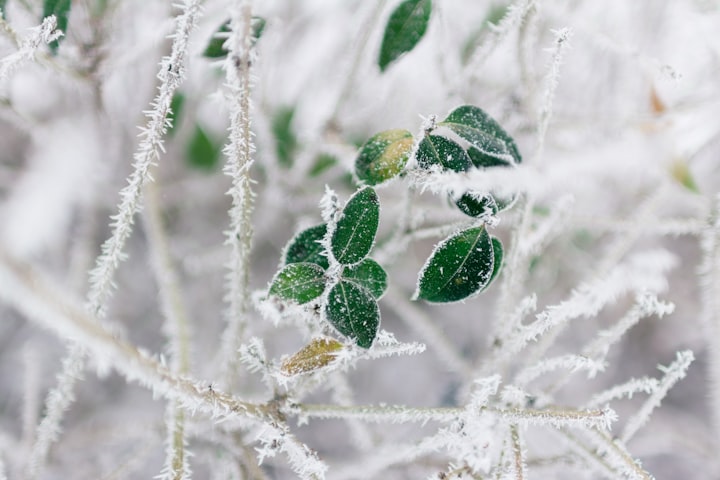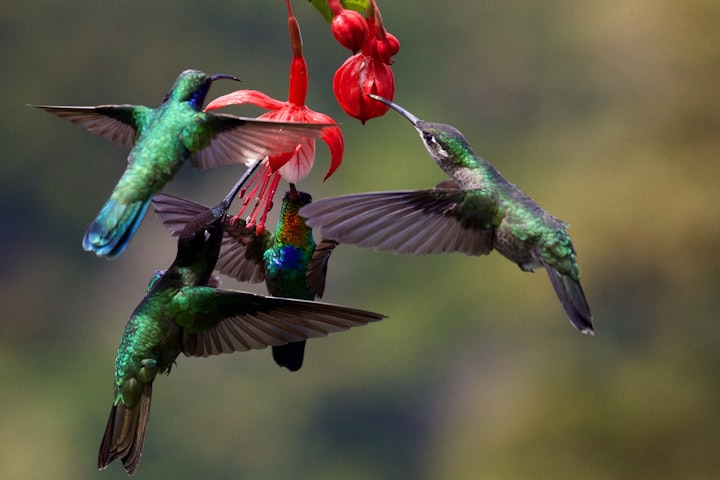
I always had the sense that Marion knew more of people than could ever be knowingly understood about her.
She had this decadent life and a bar in Dalt Vila, Ibiza's old town. We’d studied English together at university. I went on to write moderately successful fiction and Marion lived in fiction; wholeheartedly collecting anecdotes from miscellaneous boyfriends and misadventures. Her bar was a finka, an ex had left to her. I holidayed there every year and she’d share these wild stories ritualistically over wine and torn bread, and olives in colorfully painted bowls I could just discern under residual slicks of oil.
One evening last summer Marion was lounging on a twisted iron chair. Her dress folded about her. It had an exaggerated peplum and puffed sleeves in a tinselly pink and green fabric. The fullness of her dress made her look angular and papery, exaggerating her years of careless living. She looked aged as if she’d been weathered by all the dirt and swill of the Mediterranean.
Marion retold events of her past year carefully, with starry-eyed detailing between quick flicks of fingertips and majestic blue swirls of cigarette smoke. She told me about her most recent boyfriend, an artsy type who had studied at Oxford but had never reached critical acclaim for his own writing. She said he wore these animated shirts and quaffed his hair with a slink and audacity. I could imagine them talking about holidays in Europe, critiques of renaissance paintings, and discussing where to eat in Paris.
Little streaks of starlight above us were just becoming visible, moving the conversation to the more sincere.
Have you been happy? Marion asked.
Although my life was mundane relative to Marion’s, I was never unhappy. I was deeply in love with my husband. He’s empathetic but masculine with broad shoulders and a roman nose that’s susceptible to burning in sun. He’s all I’ve ever needed to feel fulfilled. I met him at a party when I was 15. We sat outside all evening entirely absorbed by each other’s conversation which is especially significant for him because he’s so extroverted. He’s the type to seamlessly move between groups of people, everyone greeting him with wide smiles and cordial slaps on the shoulder. There hasn’t been a day we haven’t spoken since. We move together. Rhythmically, as if we’re one person.
Marion knew this, I suspect she asked if I was happy so I could ask her in return. Are you?
I always found happiness difficult, Marion said. I’ve always wanted to live an interesting life, a fulfilled life. I seem to have this conviction that it’s a requirement of being here. But that seems to be at odds with happiness. She lit another cigarette. Sometimes I think I’ve lived in some liminal space, drinking too much to fully appreciate the night and asleep throughout the day.
I’d never considered this, to me her life had just been this endless summer. I told her I thought she’d lived beautifully, authentically. She’d met all these interesting people and pollinated so many lives; everyone seems to intersect somewhere at Marion.
That’s just the writer in you, she said, truly it's hard finding fulfillment blinking into strobe lights or combing through a string of apathetic relationships.
Then, Marion told me she’d been diagnosed with breast cancer.
The air felt cooler. A breeze rearranged the slight canopy of leaves above us. The salve of yellowing dawn too far away.
My husband rang me shortly after. He told me he was leaving me. He’d spent the last 18 months having an affair. While I was away, they’d lived together in our house, and he’d decided to stay with her.
I realize in retrospect when Marion had asked if I’d been happy, she was asking after me. She must’ve suspected I too had been living in denial. Living under this guise of an endless summer, a long honeymoon of a relationship. Living as if I was a character in fiction. I also have misunderstood fulfillment somehow. I didn’t know how to be without him, how to form any kind of future. I recalled this conversation I had with Marion, how she seemed to fall into that wrought iron chair. How seamless she was in that dark and cool setting. She seemed to be slightly ahead of me in her own abrupt and mandatory transfiguration. It seemed natural to stay with her for a while.
I’d walked through Dalt Vila many times with my husband. But it all looked the same. The white cottages that turned purple at dusk, the canopies of string lights and trailing rosemary, the congregations laughing at bars and cafes. Every intricacy that seemed special at the time remained. I imagined other couples holidaying here. How the salty air lingering in their memories would feel warm and significant. It made all the happy summers I’d had felt even more inconsequential.
I told Marion it was as if someone else was inhabiting my life, the future I was supposed to have. Now I’m just redundant, partially conscious. I can’t visualize myself, it’s like I’m not here anymore.
This lack of sensation turned into a long sadness. A hibernation. I wouldn’t eat for days then would a lot all at once. I wondered if they spoke every day, messaged constantly as we had about inane things. I wanted to show him my browning skin and the yellow sunsets. I read, and reread text messages from him. I counted the calls between us, tracing the letters of his name with a fingernail. I wanted to put my head on his broad shoulders and smell his neck. I rehearsed meetings with him in different settings, reacting in different ways.
Marion had started hormonal therapy; it gave her hot flushes and I’d regularly find her leaning her forehead against the fridge or holding cold bottles of rosé to her neck. We both, for the first time in our lives, sought the winter. A slowing down, somewhere the air was cool enough for clear introspection and we could cocoon against long hours of daylight. We decided to move back to England.
Before we left, I found Marion bent into a flower bed of marigolds. Her impetuous nature was at odds with the way her hands moved, carefully kneading the soil with practicality I hadn’t seen before. She explained she was preparing the soil for winter; Marigolds are self-seeding and can survive the winter months if adequate care is taken.
In October as the boats upon the horizon began to filter away for warmer climates, we moved North, back to England. We pooled some savings together and rented a terraced cottage with a low roof and thick bricks, in a seaside town with receding cliffs and a foamy sea.
As we arrived it was approaching Halloween night. Cotton cobwebs were draped across windowpanes with black plastic spiders at their centers; fat orange pumpkins with ghoulish smiles looked out upon the dark streets. Children began to descend upon our door dressed as monsters with haggard, witchy features.
The rain fell that evening with such an intensity it bounced from the cobbles. I thought about that rain a lot as if it was preparing me with an animalistic readiness for winter. Marion suggested it was as if star-bound revenants were spitting through the clouds and began telling ghost stories in the half-light of candles. It was a different kind of escapism, new grief that understood continuity and loss. Grief without catastrophe or pantomime, one that accepted change and acknowledged the darker and quieter cycles of life.
I was apprehensive about the approach of Christmas. There was an encroaching sad nostalgia in the smell of the fern and the twinkling string lights. Christmas felt like an unwarranted interlude to the protective snug winter had brought. I began thinking again of my husband and his friends celebrating without me.
What would you be doing if he was here? Marion asked as I span a paper snowflake that was hung from the ceiling between my fingertips. I don’t know, I sighed, we use to go out a lot at Christmas for food or drinks you know. But I don’t have a personality as he does. I wouldn’t be greeted with the same warmth.
Sometimes I feel as if I’ve lacked a personality completely like I was just choosing one to appease each of his moods. In public he was always so social, I was just there.
I dropped my hand to my head and the snowflake continued to pirouette. We watched it idly. You’ve never had the opportunity to be independent, Marion said, we should go out.
I was waiting for Marion to finish getting ready. I could hear clothes hangers falling to the ground with sad clinks. I went into her room to see her knelt amid a pool of silvery slip dresses with fiddly spaghetti straps. I’ve gained weight Marion said softly, I’ve lost my tan and my shins have coarse hair I haven’t shaved for a month. It seems so ironic to me that my appearance afforded me this ridiculous life and my breasts, the epitome of my femineity, are now killing me and taking every aspect of me with it. I’ve always been acutely aware that I was aging, this is the first time it’s been a necessity to embrace it.
I suppose now you’ll just have to focus on being happy, I told her.
We left for our local pub embracing each other from the cold and wrapped in boots and jeans and thick jumpers. The pub had a familiar warmth. There were men with labradors and spaniels at their feet. They had burst capillaries across their cheeks, likely due to the years of beer congesting beneath their skin, but they looked as if they were fizzy with excitement. The smell of yeasty dampness lingering in the lager-stained carpets, discolored by the consolidation seeking of ages. We leaned into the folds and buttons of leather upholstered chairs. Under the intimate marmalade lighting, we flirted and danced; leaning upon tables and into each other and talking happily to others around us about work, family, and uneventful things. We made lots of friends that evening, singing old Christmas songs, swaying all in unison.
As the nights drew in and the temperatures dropped, our lives become deliberate and slow. I began to find pleasure again in the mundane: tidying discarded winter boots and tussled line paper-we both wrote profusely through this time. The dark nights began to have a velvety allure, permitting early sleep, and the cold mornings allowed pajamas and thick socks long past midday. There was no epiphany as such, just space to grieve and begin to reinhabit my body again. My body was changing daily, my complexion thickening and hair darkening. I felt in tune with these changes, recognizing my body’s adaptive response to winter. Everything began to feel sharper and more essential, the comfort and self-care a necessity. Marion had decided to have a double mastectomy, it was partially preventative, but she was now at ease with this decision.
When the days became long again, we returned to Dalt Vila. The marigolds had bloomed, surviving the winter. Seeing them was like seeing Marion’s bar again for the first time. We each got tattoos of marigolds: Marion’s in a neat row covering the scars where her breasts had been, and mine over my left chest.






Comments
There are no comments for this story
Be the first to respond and start the conversation.